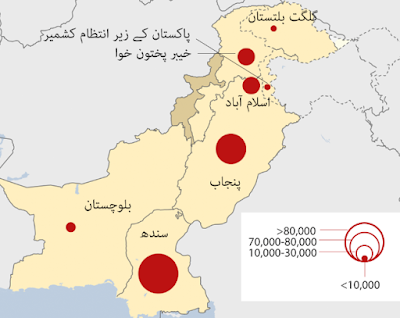The world after the coronavirus and the reorganization of fossil capitalism
There are many analysts who point out that the SARS-CoV-2 epidemic is a turning point that warns of an epochal mutation and, therefore, a global reconfiguration of current systems of domination and exploitation. Although the virus did not generate the systemic crisis that we are experiencing today, it has made it evident and is probably accelerating it. Among other things, the pandemic has placed greater emphasis on the exhaustion and destructiveness of capitalism with an energy matrix based on fossil fuels. In this sense, there are several interesting meeting points between the virus and climate collapse.

In a few months the virus accomplished what seemed unthinkable. Attempts to contain it forced to limit the accelerated exchange of unnecessary goods and the massive movement of human beings, measures that the World Trade Organization (WTO), the promoters of neoliberal globalization and other opponents of state intervention in the business, they would have plainly impeded. Likewise, the SARS-CoV-2 has caused large hydrocarbon corporations that with the climatic emergency had not changed their extraction, production and consumption patterns at all to stop part of their activities. Such is the case of the oil company ExxonMobil, the great financier of climate denialism, which announced at the end of March this year planned short-term cuts in capital and operating expenses during the pandemic, among which the decision to delay the commissioning of a $ 30 billion liquefied natural gas plant in Mozambique.
Given that the movement of goods and people to the scale and speed demanded by current capitalism would not be possible without the burning of fossil fuels, restricting them has generated a 25 percent decrease in greenhouse gas (GHG) emissions. , a drop of more than 50 percent in the prices of oil and other commodities, and the collapse of expectations for economic growth. [8] Although, the current economic crisis could be the time to move towards lower consumption of energy and materials by the central economies, corporate resistance does not take long to appear, one of the most notable is that coming from the oil-automotive complex. The old formula of socializing the losses of large corporations comes up for discussion. Tax forgiveness, the creation of funds and the relaxation or cancellation of environmental regulations are required for large capitals, so that the setbacks that the SARS-CoV-2 has given to the hydrocarbon economy are momentary.
In the United States, airlines demand government support to overcome the crisis the virus has imposed on them, while the Environmental Protection Agency (EPA) further relaxes environmental rules and monitoring for industries that Like petrochemicals, they are highly polluting. In the European Union, automakers and other groups representing the supply chain are using the pandemic to delay imposing stricter limits on their cars when it comes to CO2 emissions. As such, fortuitous improvement in air quality or emission reduction targets can easily be reversed, dismantling even previously achieved achievements in environmental and health regulation. On the other hand, as in other moments in history, there is always the possibility of reactivating the war economy as an engine of economic growth and a great eater of hydrocarbons.
Fossil capitalism and the war-industrial complex take advantage of the SARS-CoV-2 emergency to reorganize, thereby exacerbating climate destabilization. At least this is shown by research recently published by InfluenceMap, which when analyzing the behavior of lobbying during the time of the pandemic in different countries yielded a neuralgic conclusion: “The oil and gas sector seems to be the most active in the world in two Lobbying areas requires both financial support and deregulation in response to the COVID-19 crisis ″, to which the study adds “climate-related deregulation seems to be the priority.
It is clear that the military-industrial complex will do everything to return to the “normal state” prior to SARS-CoV-2, however, as Naomi Klein points out, for the rest of us “normal is deadly. ‘Normality’ is a huge crisis. We need to catalyze a massive transformation towards an economy based on the protection of life. ”
The social and personal consequences of the pandemic have forced us to turn towards the basic elements of the reproduction of our existence, expropriated by the logic of capital, commodified and almost entirely privatized: food, human labor, social security, health, education, transport, energy and water supply systems. In many ways, the pandemic has dramatically synthesized the self-destructive character of a society organized under the logic of profit and sustained by the super-exploitation of human beings and nature.
The world as we knew it collapses and with it opens a range of possibilities that can be fatal or hopeful for the planet, and for all the life forms contained within it. Hopefully collectively we have the organizational and inventive capacity to orient ourselves towards the latter. What is done from now on will largely define the world we will have after SARS-CoV-2




Comments
Post a Comment